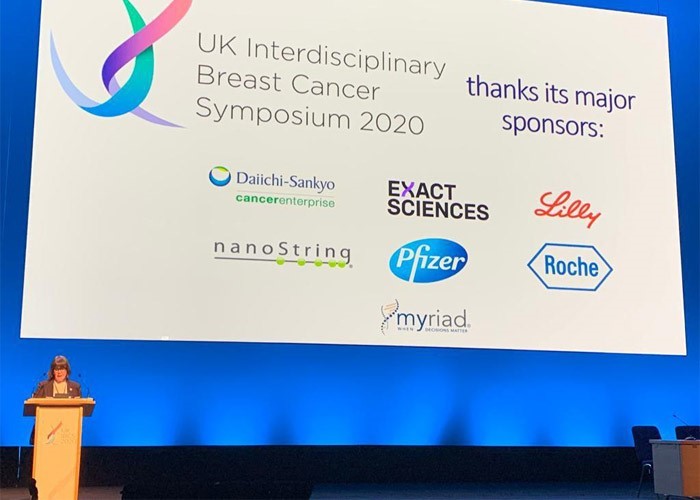New research has found that a new drug could reverse or even prevent resistance to hormone therapy.

New research, being presented at the UK Interdisciplinary Breast Cancer Symposium hosted by Breast Cancer Now, has found that a new drug could reverse or even prevent resistance to hormone therapy.
New laboratory research has found that a drug based on a natural compound found in broccoli, kale and other cruciferous vegetables could reverse or even prevent breast cancer becoming resistant to hormone therapy.
Scientists from the University of Manchester found that the new drug, SFX-01, blocks an important chain of reactions in breast cancer cells. In future, it could be added to hormone therapies to boost their effectiveness.
Further research is needed to determine who would benefit the most from the new drug and to test it further in clinical trials.
Preventing resistance
Up to 80% of breast cancers are known as oestrogen receptor (ER) positive, which means they are encouraged to grow by the hormone oestrogen.
Hormone therapy blocks the effect of oestrogen, and is used to reduce the risk of breast cancer coming back. However, some breast cancers may become resistant to treatment and some people can see their breast cancer return.
Dr Simon Vincent, Director of Research at Breast Cancer Now, explained the importance of understanding resistance to hormone therapies:
‘It’s really exciting that SFX-01 could in future help to improve the effectiveness of hormone therapies and prevent or treat the return of breast cancer. While hormone therapy is effective for most women, some see their breast cancer return and we urgently need to find new ways to tackle and prevent drug resistance.’
In this new study, researchers investigated the effect of SFX-01 alone, or in combination with tamoxifen or fulvestrant, in the laboratory to understand how the drug works and how it can be best used to treat breast cancer.
The study was led by Dr Bruno Simões, Dr Sacha Howell and Professor Rob Clarke at the University of Manchester.
Targeting STAT3
SFX-01 is inspired by a natural compound which is found in cruciferous vegetables such as rocket, broccoli and kale.
In a recent clinical trial, called STEM, it was found to delay the disease getting worse in women with secondary breast cancer whose disease had already developed resistance to hormone therapy. In the trial, 25% of participants benefitted from the addition of SFX-01 to hormone therapy, but the reason this worked wasn’t known until now.
In this new research, the team found that SFX-01 blocks an important chain of reactions, called the STAT3 signalling pathway, in breast cancer cells. As a result, it reduced the ability of breast cancer cells to form tumours in mice.
The detailed understanding of how this drug works will now allow researchers to find when it’s most effective. They hope that in future it could be added to hormone therapies from the outset of treatment to increase their effectiveness in women with primary breast cancer.
Co-author Dr Bruno Simões, Research Fellow at the University of Manchester, further explained their findings:
‘We are excited by our findings that combining standard hormone therapies with SFX-01 could improve treatment of some breast cancer patients by reversing resistance driven by the STAT3 signalling pathway.’
Simon added: ‘This important discovery reveals exactly how SFX-01 can help overcome hormone therapy resistance. We hope it could now open the door to it being used from the outset of treatment, to prevent resistance from developing in the first place.’
Fine-tuning the results
Using these findings, the researchers’ next steps are to understand why some people’s tumours are more sensitive to SFX-01. They also want to know if looking at the activity of the STAT3 signalling pathway could provide a new test to determine who would benefit the most from the new drug.
‘With the success of the recent clinical trial in secondary breast cancer, we hope that further studies will now help to identify which patients may benefit the most from this drug so that it could soon reach the clinic,’ said Bruno.
Simon added: ‘We look forward to results of further trials to fully understand who is likely to benefit most and at what stage of treatment it should be added to hormone therapy to give patients the best chance of survival.’
This study was presented at the UKIBCS.
If you have any concerns about breast cancer or hormone therapy, you can speak to our expert nurses on our free Helpline at 0808 800 6000 or by using our confidential Ask Our Nurses service.